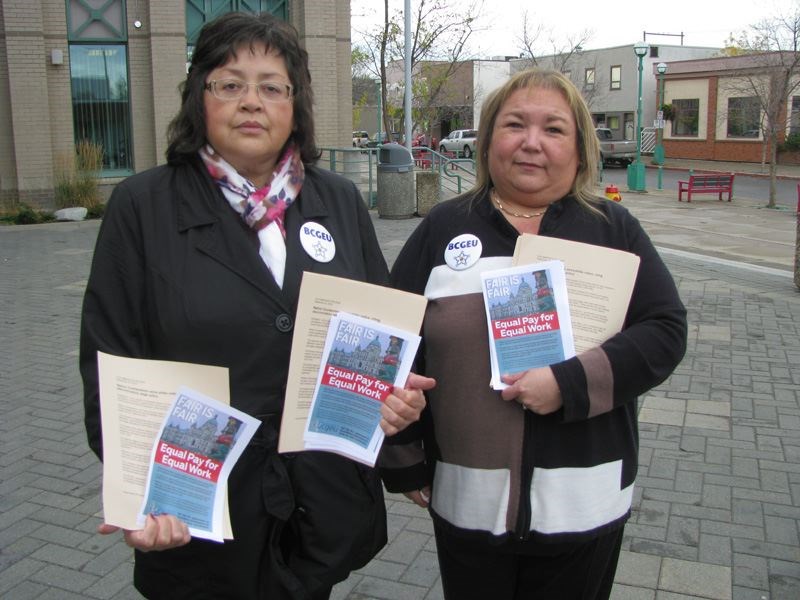B.C.'s native court workers - including the two who work at the Prince George courthouse - are on strike, saying they are being paid significantly less than other public workers doing similar work.
The starting salary for the position is only $31,800 a year, compared to $45,100 for a comparable classification, according to the B.C. Government and Service Employees' Union.
The union blames the difference on the failure of the B.C. government to bring these workers into the Community Social Services Employers' Association (CSSEA) Aboriginal bargaining unit when it was created in 2003.
"This dispute is fundamentally about a government wage policy that treats workers differently," BCGEU president Stephanie Smith said. "These workers are paid artificially low wages compared to their peers. It's time for the government to fix this injustice."
Workers in this bargaining unit also haven't had a wage increase in five years, and have only seen a nine per cent pay increase since 2002, the BCGEU said.
"Our members have been patient, waiting for the B.C. government to do the right thing and treat them like other public employees," says Smith. "But now they are saying enough is enough and are reluctantly taking job action to pressure the government to fix this discriminatory practice."
The BCGEU represents 36 members employed by the Native Courtworker and Counselling Association of British Columbia, who provide court services and counselling to Aboriginal citizens in 20 communities across British Columbia.
They issued 72-hour strike notice on Sept. 25 but so far the two based in Prince George - Florence Henry and Christina Draegen - have limited their action spending Monday morning handing out information in front of the courthouse.
Native courtworkers help Aboriginal clients navigate the criminal court system. Draegen said she handles about 1,000 files per year.
A Ministry of Justice spokesperson said the provincial government is not directly involved in the current labour dispute and negotiations because the salaries are paid by the NCCABC.
"That said, the ministry is hopeful that a resolution will be found as quickly as possible and will monitor any potential impacts to aboriginal clients in our courts throughout the province, including in our four First Nations courts," the spokesperson said.
NCCABC executive director Darlene Shackelly said her organization will be meeting with the Ministry of Justice on Oct. 24 to state its case for more funding.
"The program has nothing within it to support a wage [increase]," Shackelly said. "We have done our due diligence to get our expenditures as tight as we can possibly get them."
Native court workers' salary peaks at $39,000 after four years, Shackelly said.


